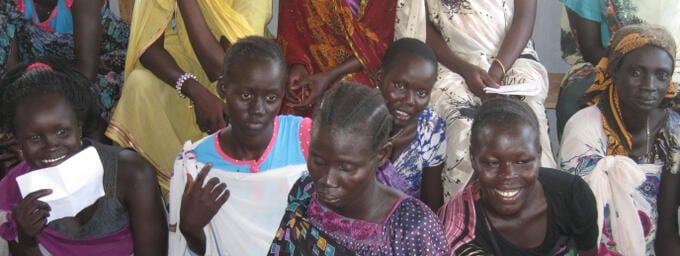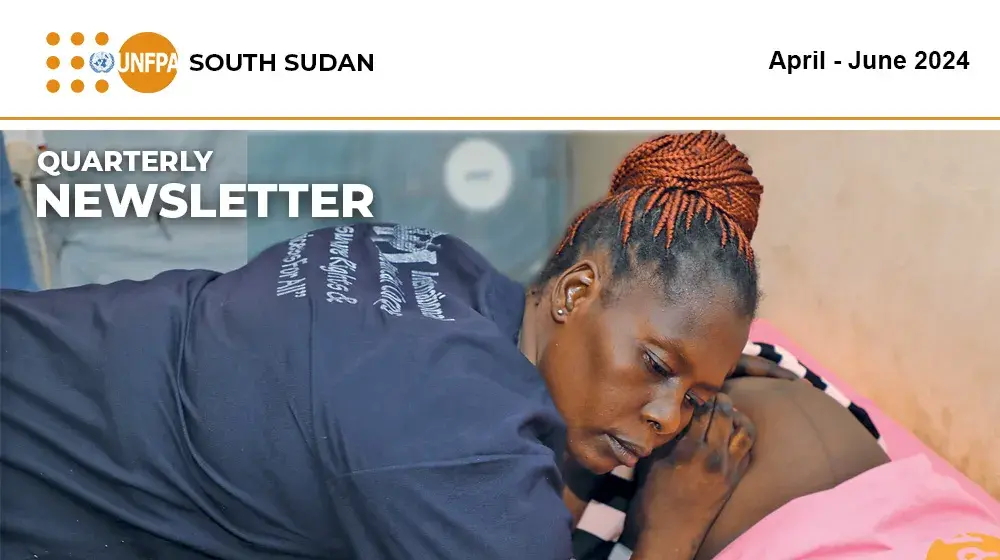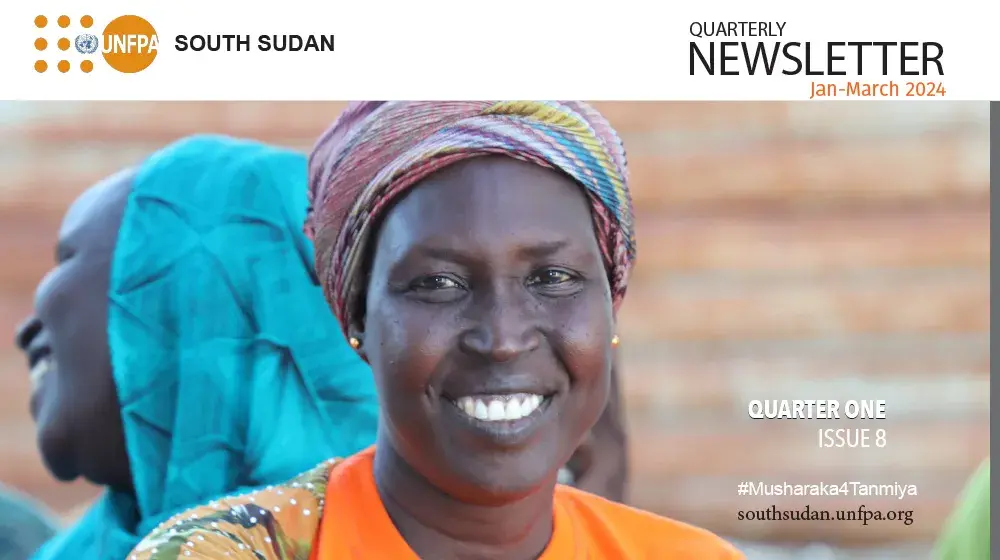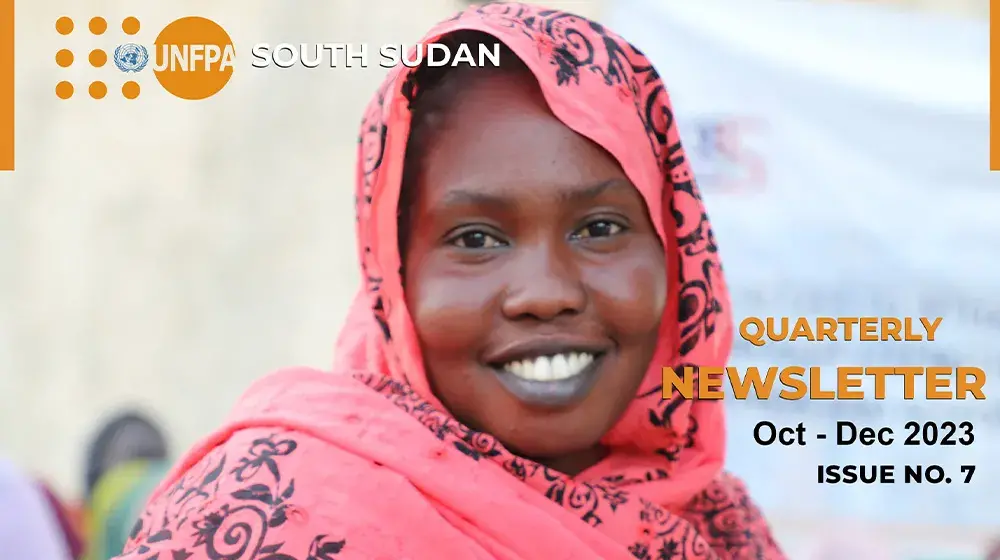JUBA, South Sudan – Teresa Aruoth never knew she could use family planning to help space the births of her children. Married in her teenage years, she counts herself lucky to have remained healthy in a country where one in seven mothers dies in childbirth.
“It is not like I don’t know that something could go wrong, but we have very few choices as women. I knew I would give birth forever,” she recalls.
The ongoing crisis in South Sudan has made the need to provide women with family planning services even more urgent. Like Ms. Aruoth, many South Sudanese women now find themselves in camps for internally displaced persons, and while these camps afford a relative degree of safety, childbirth remains the biggest threat to their lives.
Learning about family planning in the camps
On this day, Ms. Aruoth and other women have crowded into a UNFPA tent in Tomping, a sprawling protection camp at the UN base in Juba, to receive information on family planning.
The room is filled with infants, many of them distracting their mothers, who shush the crying babies while listening to the community health worker.
Ms. Aruoth listens attentively as the health worker explains the different methods available for family planning.
“I never knew a woman like me could stop and only give birth when I wanted. But now I have the information I received from the clinic here [in the camp],” she says. “I think I have had enough children, and I want to focus on looking after them.”
Ms. Aruoth, now 27, had her first child when she was 16 years old.
“At times, you feel giving birth endlessly is not good for your health, but as a woman, you don’t know what to do. Now I know,” she adds.
While breastfeeding her seven-month-old baby, another mother in attendance, Mary, 28, explains that she would also love to be able to plan her family. But she says convincing her husband will be a challenge.
“I would want to stop giving birth now because I have been lucky to have many children. My husband will not like it, but I know if I continue talking to him, he might change his mind,” she says.
Dire statistics
South Sudan has distressing statistics on family planning. The country’s contraceptive prevalence rate is just 1.5 per cent for modern methods, such as condoms, contraceptives pills, implants and injectables – the lowest in the world.
In addition, pregnancy among adolescents has recently increased from one fifth to one third of teenagers. A 15-year-old girl in South Sudan is more likely to die in childbirth than to complete her education.
Working to address some of these issues, UNFPA has provided family planning services to some 4,500 displaced women and girls between January and March 2014.
Family planning part of humanitarian response plan
According to Michael Tekie, a reproductive health specialist at the UNFPA office in South Sudan, accessing family planning services for the thousands of women who need them remains an important life-saving component of humanitarian response.
“The [quickest way] to address maternal mortality is by scaling up family planning services and information. If we fail to address the family planning needs [of women and girls] in the current crisis, then maternal deaths will increase manyfold,” says Mr. Tekie.
“Women of reproductive age are often neglected, yet they can be victims of rape... and other forms sexual violence. So it is important to vigorously address the family planning needs of women and girls displaced as a result of this violence,” he adds.
There are an estimated 500,000 women of reproductive age, and some 80,000 pregnancies projected to occur, among the approximately two million people targeted for health-related interventions, both in and out of the camps.
- Kenneth Odiwuor





